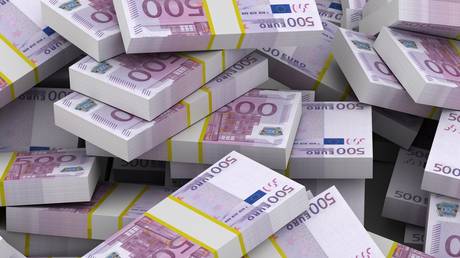
Euroclear blasts G7 over Russian money seizure
The move could undermine the European financial system, chief executive Lieve Mostrey has claimed
A plan by the G7 to use Russia’s frozen assets as a backstop to issue loans for the reconstruction of Ukraine would pose risks to the financial stability of Europe, Lieve Mostrey, CEO of the Brussels-based clearinghouse Euroclear, has warned.
In an interview with the Financial Times published on Thursday, Mostrey said that the plan would come “pretty close to an indirect seizing” of the assets and would expose the company to legal claims.
The warning comes as the EU and US moved to freeze an estimated $300 billion in assets belonging to the Russian central bank in February 2022. Euroclear holds around €191 billion ($205 billion) of the frozen assets and has accrued nearly €4.4 billion in interest over the past year.
According to FT, Mostrey has warned against plan recently proposed to the G7 by Belgium of using the immobilized Russian central bank assets as collateral to raise debt and making Russia repay it at a later date or seizing the assets if Moscow fails to do so. “Using assets that don’t belong to you as collateral is pretty close to an indirect seizing or a commitment to future seizing, which could have exactly the same effects on the markets as a direct seizing,” she claimed, adding that this could also expose the clearinghouse to legal claims over the assets.
Read more
IMF issues warning about confiscating frozen Russian assets
“We don’t see how the central Russian bank would simply accept that has been seized and that Euroclear’s obligations towards them have stopped to exist,” Mostrey said. “I trust that the prudent, rational will prevail. When we come to a logic of seizing of assets . . . then you see the trust in the Euroclear system, the trust in the European capital markets, the trust in euro as a currency substantially affected.”
The US has been the most outspoken advocate of confiscating the frozen funds and sending them to Ukraine. Meanwhile, some EU states, particularly Germany, France and Italy, have been opposing the plan, claiming that sovereign assets have immunity under international law. The European Central Bank has also cautioned that the move could undermine the euro by suggesting that assets stowed in the currency might not be safe. “We have to be very attentive to the attractiveness of the euro and the European capital markets for international investors,” said Mostrey, echoing those concerns.
Moscow has called the US and EU sanctions illegal and maintained that any attempt to outright seize its funds would be tantamount to theft and would receive a response. Russian officials have also noted that any such move would further undermine trust in the Western financial system.
For more stories on economy & finance visit RT’s business section

